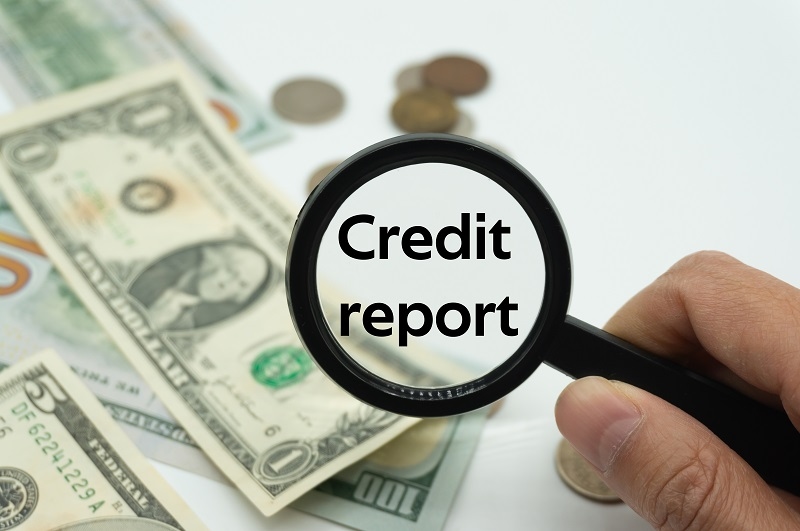
Once you are behind on a payment—whether it is a physician's bill, credit card bill, or electricity bill—the original creditor will then forward the amount in arrears to a collection agency. At that time, these kinds of accounts can become collection accounts on credit report, and that entry can also damage your credit score significantly. For most American consumers, collections on their report are a security headache. What is it really? How does it damage your credit score? And more significantly, how do you repair it?
Here in this article, we will tell you the impact of collections on credit score, how to get collection accounts deleted, how long collections stay on credit, the process for negotiating collections, and discuss your choices for collecting collections. We will also tell you whether or not paying collections damages your score, and how to move forward with healthier practices.
A collection account is a record on your credit account that the original lender or service company sold the debt to a third-party collector. For example, if you have not made a payment on a credit card for months, the lender can "charge off" the debt and sell it to a collector. The collector tries to collect money by calling you or sending you a letter.
Once this happens, the account is usually reported to the three major credit bureaus (Equifax, Experian, and TransUnion). This results in a collection account on your credit report, which signals to lenders that you’ve had difficulty repaying debts in the past.
One of the worst things a collection can do is impact your credit score. How collections impact credit score can be disastrous, particularly if your credit is already good.
FICO Score Impact: For individuals with otherwise excellent credit, one collection can reduce scores by over 100 points.
VantageScore vs. FICO: More recent iterations, like FICO 9 and VantageScore 3.0 and above, don't count paid collections when calculating your score. Unpaid collections do hurt your score, though.
Severity Based on Age and Balance: The newer the collection, the more severe the damage. And higher unpaid balances hurt lenders more than lower ones.
Ultimately, collections suggest you’ve defaulted on an obligation, which makes lenders hesitant to extend new credit. This is why understanding the impact of collections on credit score is crucial if you’re planning to buy a home, finance a car, or even apply for a rental apartment.
One of the most common questions consumers ask is: How long collections stay on credit reports?
Standard Timeline: The accounts will remain on your report for seven years from when you initially fell behind to the original creditor—not from when you sent it to collections.
Even If Paid: Even if you repaid the debt, the account will likely appear for the full seven years unless you are able to get it removed.
Less Weight Over Time: While notation has been around for a few years, its effect on your score fades as collections get older—especially after two years.
Knowing the duration collections last on credit allows you to make decisions. If you're close to the seven-year limit, waiting out natural fall-off can be the least hassle-prone approach.
The good news is that, in some cases, collection accounts on credit report can be deleted from your report. Here are the largest strategies:
Goodwill Deletion: If you've paid the debt, you can send a goodwill letter to the collector asking them to delete the negative notation as a gesture of goodwill. Success rate is low, but it can never hurt to try.
Pay-for-Delete Agreements: It's trying to get the agency to enter into pay-for-delete agreements, paying (in whole or part) to have the listing deleted. Be mindful, though, that not everyone plays ball, and the credit bureaus don't sanction either.
Errors in Disputes: Collection accounts, on occasion, are in error. When you see incorrect dates, inaccurate amounts, or accounts that aren't yours, you can dispute them with the credit bureaus.
Time-Based Removal: As discussed, in seven years, your account will automatically be removed from your report. Otherwise, you can dispute it to have it removed.
Having that available makes you more empowered to take action in having collection accounts removed and restoring your credit history.
If the account is real, you can pay less than dwhat is ue by paying collections. Collectors buy accounts for pennies on the dollar, and they will accept less than the balance.
Lump-Sum Settlement: Make one payment short of the balance. For example, a balance of $1,000 can be paid in one payment of $400.
Payment Plan: If you must pay by installments, arrange a payment plan with smaller monthly payments.
Written Agreements: Insist on written agreements prior to paying, especially if the collector will remove the entry with "paid" or erase it.
Pay-for-Delete Requests: As noted above, some collectors will erase the entry entirely when you pay, yet there is no guarantee.
Negotiated collections, if done right, can save you money, decrease the credit blow, and worry you less.

Another thing most of you wonder is whether paying collections will affect your credit score. The response is determined by the scoring model employed:
Older FICO Models: Older FICO scoring models still ding paid collections, and therefore your score won't be boosted right away.
FICO 9 and VantageScore 3.0+: Neither of these versions includes paid collections, so the collection no longer negatively affects your score once you pay for it. More and more lenders are beginning to utilize these versions, and that's fantastic.
Other Pluses: Your score will never improve on its own, but paying collections is a plus. It halts collection calls, closes the lawsuit door, and shows future creditors you paid off debt.
So paying collections does have an effect on your credit, but usually, it's a favorable effect in the long run than if you had not paid anything at all.
If you've discovered a collection account on your report, then do the following:
Validate the Debt: Have the collector verify the debt in an effort to verify the debt as real and yours.
Know Your Rights: Educate yourself on the Fair Debt Collection Practices Act (FDCPA), which will protect you from harassment and abuse.
Select an Option: Depending on your situation, you can choose to dispute errors, pay the debt, pay the balance in full, or allow it to drop off on its own.
Write It Down: Do not rely on implied agreement from collectors. Write everything down to guard against yourself.
Rebuild Credit: Beyond paying collections, focus on rebuilding your credit record—pay bills as agreed, maintain low balances, and limit new, non-essential debt.
Collections must be paid, yet ideally, they won't occur again. This is how:
Put Payment Reminders in Place: Pay bills on time via apps or automatic payments.
Save for Emergencies: Storing a bit of cash aside will make it so that you'll be able to pay unexpected bills before they become unpaid debt.
Be Up to Date: Check accounts and statements regularly so you can detect late payments early.
Review Your Credit Reports: Legally, you can get a free report from each of the three agencies once a year at AnnualCreditReport.com. Reviewing your report will allow you to catch problems early.
A collection account on your report is scary, but game over is not an option. By becoming more informed about how collections impact credit scores, the duration of collections on credit, and what steps can be taken to have collection accounts on credit report removed, you can be on your way to better finances. Whether you choose to negotiate payment, pay them off, or string them along, the point is to be proactive and informed.
Remember: Collections do sting, but just temporarily. With excellent long-term credit, your credit score can bounce back, and you can kiss bad old habits goodbye.
This content was created by AI